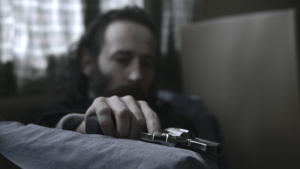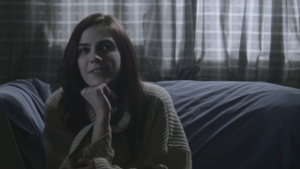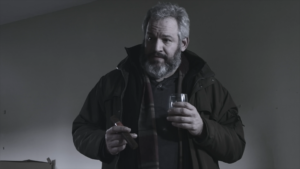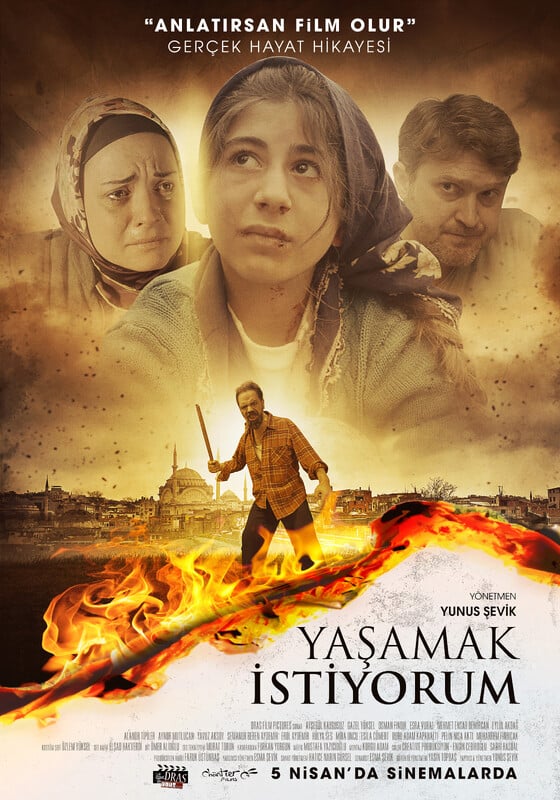
Indie Film Review “The Forgiving”
WATCH THE TRAILER HERE
WATCH THE FILM VIA AMAZON PRIME HERE
First, the Recap:
Unabated, protracted desolation of spirit. The last place anyone would wish to find themselves under the weight of, a turmoil within that is birthed from tragedy remains a potent and damaging specter. Easier to give in rather than somehow finding the forbearance to push through, the anguish takes the reins of our being, guiding us down roads that could lead to drastic actions. Yet, even in this darkest of places, an unexpected light can infiltrate it and alter our path. For Avi Brickman (John Gerard Healy), whose life is now devoid of his beloved daughter Kaylah (Carolena Arias), his wife Beth (Jenna Sokolowski), and most other facets that had any significance, an untimely exit appears to be the out he’s seeking. But, when an unforeseen encounter with a young mother named Renata (Emily Classen) and her daughter Angelina (Laurel Webb) disrupts his unsettled state of being, it could spell further pain–or a road to redemption.
Next, my Mind:
Possessing a deeply intelligent purpose, unapologetic intentionality, grounded storytelling, impactful messages, and an unrelenting emotional quotient that is carried out with both evocative subtlety and blatantly stirring dramatic fire through the highly affecting sequences and events depicted, this 103-minute indie feature effort from writer/director/producer David J. Stern, producers Matthew Roe and Patricia Meyers, plus executive producers Peter Mitchell, Dina Perry, and George Perry bears a profoundly moving narrative that, for this critic anyway, is one of the most intimate, heart-wrenching, yet ultimately cathartic perspectives of loss, its inner battles, and the path to absolution I’ve seen. Presenting a wonderfully unique and unexpected approach in painting a true image of just how our mind and spirit copes with grief and the lengths we allow it to control us if we remain unwary of its grasp, it is an exercise in reality and metaphor, a foundational picture of the wounded heart and being trapped within the walls of said internal war.
The basis of the tale, centered on one man’s view into a seemingly endless void with no sense of reality or acceptance of it via the harsh circumstances he’s now confronting, offers a level of realistic relatability that stands out so strongly for the viewer to an extent that one cannot help but be drawn in, accompanied by building empathy for the lead character and the plight he endures. I consistently mention this as one of the key “gifts” that indie cinema delivers through its story and character-based focus, allowing every chance for us to experience what the characters are and reacting accordingly as we watch their journey unfold. Thanks to the effort’s smartly creative and well-executed writing, there is such a dynamic range of content thematically we’re entreated to, from the seriousness of depression, hopelessness, destitution of soul, the haze of routine to cover hurt, guilt, blame, haunted reverie, and other extremes we venture to in sadness, to beautifully crafted moments of hope, joy, fond remembrance, and the overpowering influence of release and inner freedom that comes when we find that place of exoneration and admittance we need help. The finale is one that, I felt, flat out inspires in its potency.
Additional explorations arrive that address choices and their ramifications, dodging responsibility, facing the ghosts (and truths!) of our pasts, and realizing we can not only move forward if we’re willing to let go, but can also find a new lease on as of yet accomplished dreams and reconciliation of damaged relationships while we heal. All of this is enhanced through the deftly shot visual presentation which bounces back and forth between vibrantly colorful then starkly muted, ashy greys that smoothly flows along with the film’s moods and tones. Likewise, the music score elicits that primarily forlorn atmosphere as well, but is certainly apropos given what’s portrayed, and definitively adds to the underlying, engaging poignancy of the narrative. I give full credit to filmmakers who address the grander subjects of this kind of trauma and overt melancholy while then showcasing the fact that there IS optimism and liberation to be had from it, whether from expected sources or the unanticipated. In a day and age when mental well-being is paramount, being made aware in any form that there are those in need of help to gain it becomes a message I never get tired of being put out there, as this film so persuasively does.
Healy’s performance magnificently attracts our attention with an “everyman” believability, fully impassioned yet often understated delivery, and wholly effective (but not overacted) degrees of dominant boldness through his role as Avi, a writer who finds himself on the brink of total personal ruin on all levels in the wake of devastating loss. As his entire existence becomes one failure after another to come to terms with it, a decision is made that he feels provides the only answer. But, when on that precipice, the unpredicted occurs that shakes him to the core and becomes a catalyst for what is still a volatile odyssey, but one that could end up uncovering and laying bare all he needs to recognize and rectify. What I personally look for when it comes to characters that have to embody a tangibly frayed attitude is for the actor to convey that disquieted state without overacting or being melodramatic. Here, Healy wins the day by just exuding the unmistakable, abiding emotional scars Avi carries in his quest for any semblance of hope, and does so with totally memorable and affecting gravitas.
The primary supporting performances begin with Sokolowski as Avi’s long-suffering wife Beth, a woman likewise left wounded by the loss that’s ultimately separated her from Avi, but yet has done far more to at least try and move forward in her life while still managing to also make attempts to reach Avi through his resentment and dejected view of everything, with Sokolowski demonstrating a genuine, poised intensity throughout. Classen is achingly charming and gracefully effectual in her turn as Renata, a young mother who becomes a voice of sympathetic, joyful, and challenging reason for Avi when their paths and similar stories converge. Andy Brownstein arrives in a cleverly constructed and fantastic performance as Connor, a key figure from Avi’s past that also makes every effort to be a voice of aid, but whose truths can cut more than Avi wishes to embrace or listen to and who joins Renata in becoming part of larger revelations that will direct Avi’s path to inner emancipation. Then there are the two main child actors, Arias and Webb, whose characters of Kaylah and Angelina form the most essential cornerstones of Avi’s trials, admirably acted by both young stars via both delightful and distinctly dramatic performances.
Additional supporting appearances are made by a host of actors, all of whom suit their roles and play them well, including Michael Everett Johnson, Jonathan Hirsch, Jack Novak, Ned Read, Bill Steffey, Kathy Sanders, Jason Daniel Thompson, Justin X. Weimerskirch, Chris Stoneberger, and many others. In total, “The Forgiving” is a tour-de-force exhibition of mourning, its repercussions when allowed to fully take hold, the voices we hear that either tame or torment us in such a time, the final acknowledgement of our pain, and the necessary acquittal of soul that needs to occur in order to discover peace, all wrapped in a magnificently crafted utilization of symbolism that immerses us in the actuality of just how important it is to seek authentic comfort in times of personal strife in order to know we’re actually not alone.
As always, this is all for your consideration and comment. Until next time, thank you for reading!






